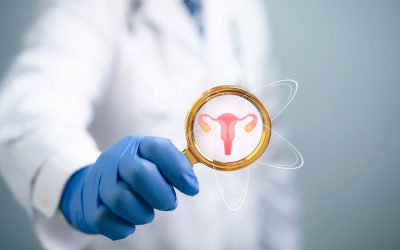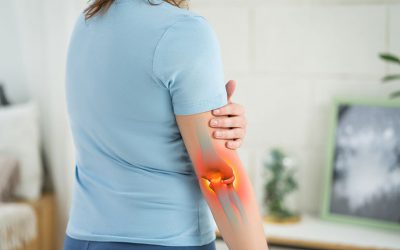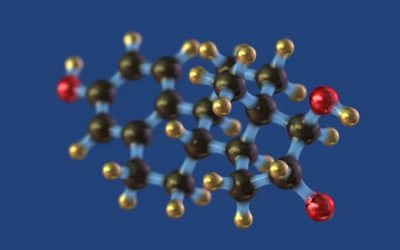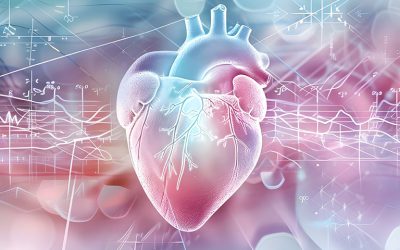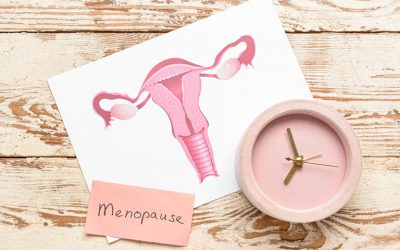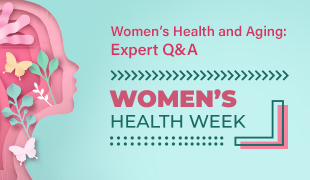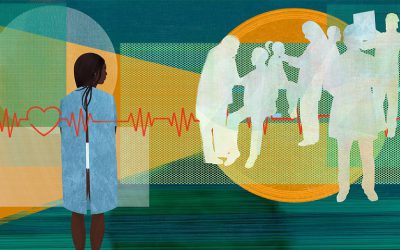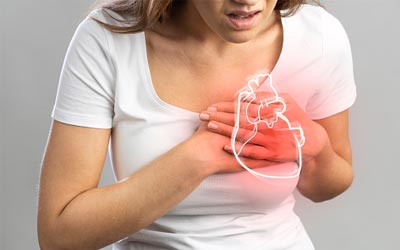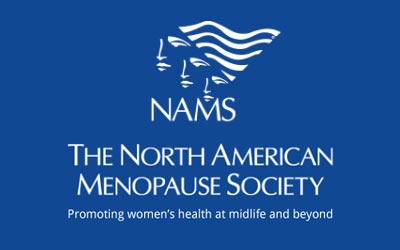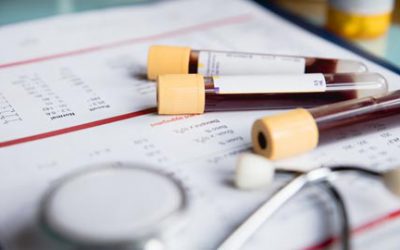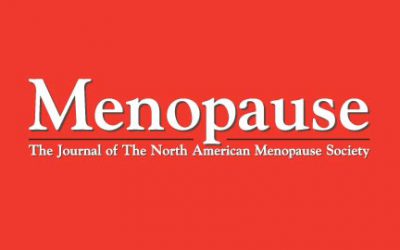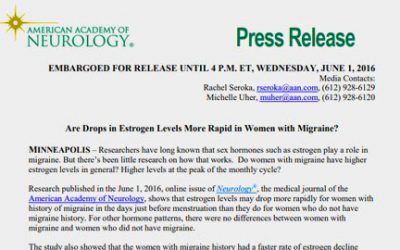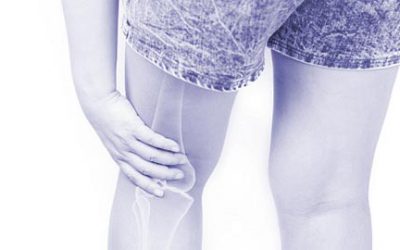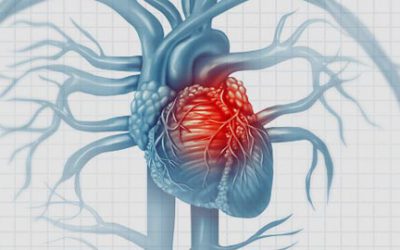
SWAN findings quoted in NYT article on health and middle age
NYT article discusses concerns and changes that come with aging and how lifestyle and behaviors can impact health in midlife. Read more from the New York Times →
SWAN NEWS
SWAN findings quoted in NYT article on health and middle age
NYT article discusses concerns and changes that come with aging and how lifestyle and behaviors can impact health in midlife. Read more from the New York Times →
SWAN NEWS

SWAN findings quoted in NYT article on health and middle age
NYT article discusses concerns and changes that come with aging and how lifestyle and behaviors can impact health in midlife. Read more from the New York Times →
SWAN findings quoted in NYT article on health and middle age
NYT article discusses concerns and changes that come with aging and how lifestyle and behaviors can impact health in midlife. Read more from the New York Times →
SWAN researchers found evidence that women exposed to toxic metals can experience earlier ovarian aging
SWAN researcher Sung Kyun Park, Sc.D., M.P.H., is the lead author of the study linking exposure to toxic metals with lower egg counts
Does prediabetes increase risk for bone fractures in midlife women?
The study first examined whether prediabetes among midlife women is associated with subsequent fracture when type 2 diabetes is not present.
SWAN Research a Key Source in Menopause Myth Busting
Scientific American’s recent article, “The Surprising Biology Behind Menopause’s Worst Symptoms,” credits research by SWAN.
SWAN Research on Role of Heart Fat in Midlife Women’s Cognitive Decline Published in US Healthcare Journal
US Healthcare published an article on research from the Study of Women’s Health Across the Nation (SWAN) measuring the cardiovascular fat of over 500 women in midlife.
SWAN Researchers Evaluate the Risk for Elevated Depressive Symptoms in Postmenopause
SWAN researcher Dr. Howard M. Kravitz and associates conducted a study to evaluate the risk for elevated depressive symptoms in postmenopause.
Relationships Between the Vaginal Microbiota and Genitourinary Syndrome of Menopause Symptoms in Postmenopausal Women
SWAN researchers Dr. Elaine Watjen and Dr. Maria Brooks conducted a study to better understand the possible role of the vaginal microbiome as a cause for pain during intercourse.
Trajectories of Sleep Over Midlife and Incident Cardiovascular Disease Events
In the study, Trajectories of Sleep Over Midlife and Incident Cardiovascular Disease Events, SWAN researcher Rebecca Thurston, Ph.D., sought to further the understanding of the importance of sleep for health.
Research Suggests Tie Between Hypertension, Uterine Fibroids
Kaiser Permanente study finds greater risk of fibroid diagnosis among midlife women with untreated high blood pressure.
Don’t Dread Menopause. Prepare for It Instead
The lead-up to menopause can feel daunting—you may no longer have full control over aspects of your bodily health that you enjoyed in your 20s and 30s.
Research Suggests Previously Undiscovered Link Between Heart Fat and Cognitive Function in Aging Women
A new SWAN nationwide study strengthens the case for women to maintain a healthy lifestyle, noting a relation between memory and heart fat quantity and quality.
SWAN investigator Dr. Sherri-Ann Burnett-Bowie was featured in an interview for NBC Boston
SWAN investigator Dr. Sherri-Ann Burnett-Bowie discusses black and white differences that were found from SWAN.
Researchers Develop Tool Predicting Women’s Health Risks to Promote Health Interventions
The SWAN Seven Score risk tool predicts women’s future health risks and possible health interventions.
New SWAN Scoring System Predicts Women’s Future Health Risks
The SWAN Seven Score risk tool predicts midlife women’s future health risks 10 years out.
Researchers Devise Scoring System to Forecast Future Health Risks for Women Ages 55-65
The SWAN Seven Score risk tool assesses older women’s risk for major problems 10 years out.
New York Times article titled “Menopause is Different for Women of Color” features SWAN Investigators, Dr. Sherri-Ann Burnett-Bowie, Dr. Monica Christmas and Dr. Rebecca Thurston
The article references SWAN as a study that has found some key differences in the menopause transition across races.
Swan Study Finds African-American Women Experience Heavier Bleeding During Perimenopause
SWAN investigator Dr. Siobhan Harlow discusses the challenges, contributing factors and coping methods for increased midlife menstrual flow.
Discrimination May Hasten Menopause in Black and Hispanic Women
Researchers say understanding differences in when menopause starts in racial and ethnic groups can help with screening and preventive care.
Save the Date: Women’s Health and Aging: Expert Q&A
In celebration of National Women’s Health Week, NIA and the Office on Women’s Health will host a live Q&A on women’s health and aging.
SWAN Investigators publish article about supporting leisure physical activity to mitigate bone loss
Whether greater leisure time physical activity (LTPA) is associated with less bone mineral density (BMD) loss during the menopause transition (MT) remains an open question.
SWAN investigator, Dr. Carrie Karvonen-Gutierrez, is featured in Verywell Health article, “Don’t Dread Menopause. Prepare for It Instead.”
The lead-up to menopause can feel daunting—you may no longer have full control over aspects of your bodily health that you enjoyed in your 20s and 30s.
Clinical Presentation Award Winner
Mary Schiff was recognized as the Second Place Clinical Presentation Award Winner at the American Heart Association’s annual Fellows Research Day.
US News & World Report article titled, “Sleep Key to Good Mental Health for Older Women” features SWAN investigator, Dr. Leslie Swanson
In this article, Dr. Swanson provides significant input on sleep timing, sleep regularity, and psychological health.
National Geographic article titled, “What happens during menopause? Science is finally piecing it together” features SWAN investigator, Dr. Nanette Santoro
All women who reach their 50s inevitably pass through menopause. Experts share the latest science and best ways to cope.
Good Housekeeping article titled, “Menopause and VMS by the Numbers” features SWAN investigator, Dr. Sioban Harlow, from the University of Michigan
These stats about how—and when—women are handling menopause and vasomotor symptoms like hot flashes might surprise you.
Science Magazine featured a SWAN JAMA Network Open article on “Weathering and Selection Bias” by SWAN Investigator Dr. Alexis Reeves
SWAN Investigator Dr. Alexis Reeves shows that “weathering” due to racist experiences can lead women of color to experience some medical conditions earlier than their white counterparts.
SWAN investigator, Dr. Victoria Fitz, is featured in Healio article, “Infertility, involuntary childlessness link to midlife depressive, anxiety symptoms.”
In this article, Dr. Fitz adds significant input on questioning as to whether women who have a history of infertility experience menopausal symptoms differently as compared to fertile women.
Oprah Daily features SWAN Investigator, Dr. Tené T Lewis, and SWAN findings
The Oprah Daily released a health article entitled, “For Women of Color, Menopause Is Different.”
JAHA features SWAN Article in conjunction with AHA’s “Go Red for Women” Campaign
The Journal of the AHA recently published the paper titled, “Psychosocial Well-Being and Progression of Coronary Artery Calcification in Midlife Women.”
SWAN Investigator, Dr. Gail Greendale, Featured in New York Times
Dr. Gail Greendale adds essential input regarding women storing fat more in their midsections around menopause rather than in their thighs and hips.
SWAN Featured in NIA News
The NIA News released a health article entitled, “Four studies explore women’s brain and heart health during midlife.”
SWAN Featured in NBC News
The NBC News released a health article entitled, “Prescription sleep pills not likely to help women in long run, study finds.”
SWAN Featured in the Washington Post
The Washington Post released a health article entitled, “Black women’s health problems during menopause haven’t been a focus of medicine.
Menopause Transition and Cardiovascular Disease Risk
The American Heart Association recently released an important scientific statement entitled “Menopause Transition and Cardiovascular Disease Risk: Implications for Timing Early Prevention”.
Swan Featured In Article That Highlights Racial Differences In Menopause
In an article from Everyday Health, SWAN results of racial and ethnic disparities in menopause are discussed.
NAMS/Menopause Best Paper Award
SWAN Researchers recognized for paper published in Menopause in 2019.
Women Face an Increased Risk of Heart Disease With Age – Running Can Help
While the possibility of this health issue goes up after menopause, that doesn’t mean you can’t reduce your risk.
SWAN Investigators Publish Article about Predicting the Timing of Final Menstrual Period
Researchers analyzed blood tests conducted on 1,537 women between the ages of 42 and 63. The long-term SWAN study monitored changes in the women’s health as they went through the menopausal transition.
Congratulations to SWAN Investigators!
Four SWAN investigators assumed leadership positions of the North American Menopause Society (NAMS) for 2019-2020.
Second Place Poster Prize
Samar R. El Khoudary, PhD, from the University of Pittsburgh was recognized by The North American Menopause Society (NAMS).
Invited Review manuscript of SWAN progress published in Menopause
A group of SWAN investigators led by Dr. Samar El Khoudary at the University of Pittsburgh have published a review of the SWAN results and progress in Menopause.
O Magazine Highlights SWAN
In a recent O Magazine article, SWAN was recognized as a major source of scientific knowledge about midlife women and menopause.
Congratulations to Alexis Reeves!
University of Michigan Epidemiology PhD student Alexis Reeves, MPH has been awarded a two-year F31 award from the National Institute of Aging.
“Temporal increases in 25-hydroxyvitamin D in midlife women: Longitudinal results from the Study of Women’s Health Across the Nation (SWAN)” has been accepted for publication in Clinical Endocrinology
Over an 11 year period, average serum concentration of 25-hydroxyvitamin D (25OHD) increased 16.2 nmol/L (6.5 ng/mL) in a cohort of midlife women followed longitudinally through the SWAN Study.
Student has Been Selected by the Society of Epidemiologic Research to Present
University Michigan graduate student, Alexis Reeves was selected by the Society of Epidemiologic Research (SER) to present at 2019 SER Student Workshop.
Changes in Body Composition and Weight During the Menopause Transition
The relation between the menopause transition (MT) and changes in body composition or weight remains uncertain.
Multi-ethnic study shows midlife women with more physical activity or a lower calorie diet have less risk of developing heart disease
Midlife women transitioning to menopause may be able to lower their risk of developing heart disease and type 2 diabetes, if they exercise more or eat a lower calorie diet.
1st Place Poster Presentation
Alexis Nasr presented a poster at the American Heart Association’s 26th annual Fellows Research Day at the University of Pittsburgh on January 12.
SWAN Albert Einstein Teams Find 89% of Hispanic Women Use Herbal Remedies
“Prevalence of Complementary and Alternative Medicine and Herbal Remedy Use in Hispanic and Non-Hispanic White Women: Results from the Study of Women’s Health Across the Nation.”
OPRAH.COM Article References SWAN Paper (Oct 2016)
An Oprah.com article references a recently published SWAN paper.
Journal of the American Heart Association features SWAN Article
Congratulations to SWAN authors: Samar El Khoudary (pictured), Imke Janssen, Susan A. Everson-Rose, Lynda H. Powell, and Karen A. Matthews!
PLOS (Public Library of Science) article features SWAN recent findings on Cognitive Decline
Congratulations to SWAN authors Arun S. Karlamangla (pictured), WeiJuan Han, Mei-Hua Huang, and Gail A. Greendale!
SWAN Paper Featured in Endocrine Today (Jan 2017)
Endocrine Today is featuring a SWAN paper that was recently published in Diabetic Medicine.
Swan Article Featured as Editor’s Choice
Congratulations to SWAN authors Jennifer Karas Montez, Joyce T. Bromberger, Siobán D. Harlow, Howard M. Kravitz, and Karen A. Matthews!
Congratulations to SWAN Investigator Rebecca Thurston
Congratulations to SWAN Investigator Rebecca Thurston, Ph.D. who was awarded this year’s Henry Burger Prize from the International Menopause Society.
Congratulations to SWAN Investigator Dr. Deborah M. Mitchell!
Please join us in congratulating SWAN Investigator Dr. Deborah M. Mitchell, who is one of six recipients of the 2016 American Society for Bone and Mineral Research (ASBMR) Rising Star Award.
SWAN Featured in the NY Times
SWAN study findings about hot flashes was recently published in the New York Times diminishing the myth that hot- flashes last for only a few years.
SWAN Establishes Link between Inflammation and Premenstrual Symptoms
Dr. Ellen Gold and colleagues recently published “The Relation of Inflammation to Premenstrual Symptoms” in the Journal of Women’s Health.
Congratulations to Jelena Pavlovic!
Jelena Pavlovic’s paper, “Are Drops in Estrogen Levels More Rapid in Women with Migraine?” was recently published in an online issue of Neurology, the medical journal of American Academy of Neurology.
Dr. Nanette Santoro wins the 2016 Laureate Award for Outstanding Mentorship
Please join us in congratulating Dr. Nanette Santoro! She is the winner of the 2016 Laureate Award for Outstanding Mentorship given by the Endocrine Society.
Congratulations to Samar El Khoudary!
Samar was selected to present her JCEM at this year’s “Best of JCEM 2016” oral session.
Wrist fractures could predict susceptibility to serious fractures in postmenopausal women
Postmenopausal women younger than age 65 who experienced a wrist fracture could be at increased risk for bone fractures in other parts of their bodies later in life, new research concludes.
Vitamin D Won’t Strengthen Older Women’s Bones
High doses of vitamin D do not appear to protect postmenopausal women from the dangers of osteoporosis, new research indicates.
Menopause Associated with More Fat Around Heart, Raising Risk for Heart Disease
Late and post-menopausal women have significantly greater volumes of fat around their hearts – a risk factor for heart disease.
More Frequent Overnight Hot Flashes Linked with Brain Scan Changes
Women who experience more hot flashes, particularly while sleeping, during the menopause transition are more likely to have brain changes reflecting a higher risk for cerebrovascular disease.
Vitamin D, Calcium Don’t Reduce Menopause Symptoms
Large study finds no difference between women who took supplements and those who didn’t.
Urinary incontinence problematic for many women over 40, study finds
Newly published SWAN research shows that urinary incontinence is problematic for many women over 40.
Hormone replacement therapy for postmenopausal women: does it help or harm your heart?
New evidence published today in the Cochrane Library shows that hormone replacement therapy (HRT) does not protect post-menopausal women against cardiovascular disease, and may even cause an increased risk of stroke.
Up to 14 Years of Hot Flashes Found in Menopause Study
Newly published SWAN research shows that menopausal symptoms may continue for up to 14 years.
Sex Hormone Levels at Midlife Linked to Bad Cholesterol Carriers that Increase Heart Disease Risk in Women
As hormone levels change during the transition to menopause, the quality of a woman’s cholesterol carriers degrades, leaving her at greater risk for heart disease.
SWAN Night-Out at the Michigan Site
Our Principal Investigator, Sioban Harlow, will lead the sessions that will discuss what we have learned together with an update on the future direction of the study.
Hysterectomy Not Tied to Heart Risk Factors: Study
Despite evidence suggesting that women whose uterus has been removed may be more likely to experience heart troubles, a new study finds that the usual signs of heart disease risk are not more severe in middle-aged women after hysterectomy.
New Method May Help Pinpoint Woman’s Final Menstrual Period
A new formula to predict a woman’s final menstrual period could help menopausal women fight bone loss and reduce their heart disease risk, a new study reports.
Carotid Artery Change In Menopause May Mean More Cardiovascular Disease Risk
Substantial changes in the diameter and thickness of a section of carotid artery in perimenopausal women may indicate a higher risk of developing cardiovascular disease, the leading cause of death in women, according to Pitt researchers.



